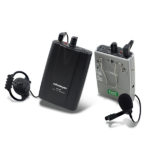How to Survive Everyday Life in Poland
So, you’ve just landed in Poland. You’ve read your share of facts about Polish history, learned a few phrases, and you already know how to survive a Polish business meeting and a Polish dinner party…
You think you’re pretty much set. Yet… in the mysterious land of Poland, there are some things that might still surprise you! You can be thanked, fined or frowned at when you least expect it, so here’s a guide on how to behave on the street, on public transport, and in shops.
On the street

When it comes to walking, wandering, and strolling around, Poland isn’t that different from other Western countries, except for one thing, crucial both for your safety and your wallet. You have to remember that jaywalking in Poland is a definite no-no. Really. There are actual fines for pedestrians who cross the street when the light is red – even when there are no cars in sight, if the police catch you, you will be expected to pay. Why? Well, there’s one quite popular opinion about Poles that they like rules and then they like to break them… More and more often this law is considered ‘victim blaming’, since pedestrians are weaker and easier to harm, while far more accidents in Poland are the drivers’ fault, but for now it’s better to keep this opinion to oneself and simply wait.
Poles tend not to look strangers in the eye, nor do they smile at them, usually behaving as if they were alone on the street. And watch out! Some surprised foreigners claim that they even tend to suddenly stop or change direction, often bumping into passers-by!
Body language

While Americans, for example, often use smiling as a coping mechanism (to apologise, thank or greet), Poles only smile when they have a solid reason. Cultural differences in the perception of smiling have been recently researched scientifically – interestingly, by a Pole.
In an article published in the Journal of Nonverbal Behavior (June 2016, Volume 40, Issue 2, pp 101–116), Kuba Krys from the Polish Academy of Science focused on a phenomenon called ‘uncertainty avoidance’. When a society has unstable social systems (such as courts, healthcare etc.), people tend to view the future as uncontrollable and therefore perceive smiling – a sign of confidence – as somewhat weird and even consider it a sign of stupidity or dishonesty. On the UA scale Poland is rather low and so Poles tend to think people who smile for no reason are possibly less intelligent.
There’s even a phrase, ‘to smile as a fool at the cheese’ (śmiać się jak głupi do sera). On the other hand, a common proverb also states that ‘laughter is health’ (śmiech to zdrowie), so don’t be too afraid of showing positive emotions in public.
As for gestures, do what you please: Poles are less energetic than Italians, but more enthusiastic than Scandinavians, so it largely depends on individual traits.
Public transport

Travelling by means of public transportation at first glance seems pretty obvious: you need to check the schedule, buy a ticket (and remember to validate it) and off you go. There is no differentiation between doors (like, for example, in London, where you are expected to enter by the front door and show your ticket to the driver), but you should remember that ticket controllers (often called by the mildly offensive name kanary) randomly enter buses and trams or even wait at underground Metro stations. As on the street, Poles avoid touching, rarely initiate conversations, or smile at each other, although some curious passengers have a tendency to stare at whoever looks a little flamboyant. You are definitely expected to give up your seat to the elderly and to pregnant ladies – this is just a sign of good manners. No surprises yet? Well, there is one peculiar thing…
If you stand anywhere near a door, you shouldn’t be surprised if someone (most often an elderly lady) asks: czy pan/pani wysiada? (‘are you getting off’), even if the bus or tram isn’t even approaching the stop yet. Why is this person interested in my destination? Isn’t it obvious I’m not blocking the door on purpose? – you might ask. They are not really interested and it probably is obvious, but you should either move over or nod and get off at the next stop – ever-suspicious, Poles like to be prepared.
Shops and cafeterias

You take money from the ATM, you go to the grocery store, excited to buy your chewing gum, and… ‘nie mam wydać’ (I have no change) is what you hear at the counter. One of the first peculiarities foreigners notice when shopping in Poland is that they are often expected to pay with an exact amount of money. ‘Can I owe you a grosik?’ and ‘I have no drobne’ are phrases often heard in shops and kiosks. It’s considered quite rude to pay for matches or a bread roll with a 100 złoty bill, and when the exact amount is 22.34 it’s best to at least find 34grosze. Alaistar, a teacher from Northern England residing in Warsaw, who often uses his experiences while preparing lessons for Poles, says:
Maybe I find this annoying as I come from a culture where you can buy a box of matches with a 20 pound note and the most you will get is a suspicious look while they check to see if the money is counterfeit. Also, I think there is an obligation to the customer from the proprietor to provide them with change because bottom line they are making them richer. That said, keeping the tills stocked with a steady supply of change, is not only more convenient to the customer but also reduces queues which result as a knock-on effect of the exact money only rule.






The post has really peaks my interest. I’m going
to bookmark your site and keep checking for new information.
This is an extremely good tips especially to those new to blogosphere,
brief and exact information… Thanks for sharing this one.
A must read article.